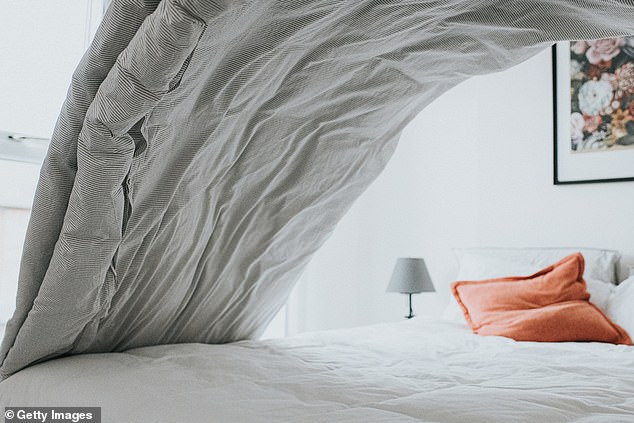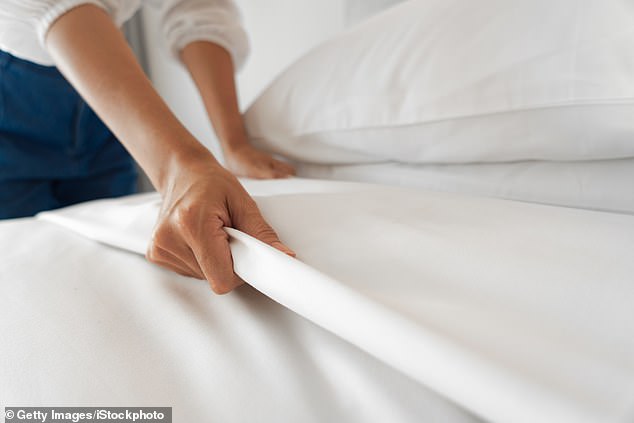We’re constantly hearing about the importance of a good evening routine to aid sleep: switching devices off well before bed, cooling your room down to a cave-like temperature, spending the last few minutes before bed on a relaxing activity and so on.
However, what you’ve probably thought about less often about is how your morning routine could impact your sleep.
Dr Seeta Shah, an expert from Panda London, says: ‘As a sleep specialist, I often remind people that what you do after waking can have just as much impact on sleep health as what you do before bed.’
One of the most surprising habits Dr Shah wants to see abandoned is people making their beds straight away after getting up, especially in the summer months.
You might think it’s a sign of virtue to tidy up your bedding the minute you spring out of bed, but apparently that’s not the case.
‘Over the course of the night, your body naturally releases heat, sweat, and microscopic skin particles into your bedding. In summer, when temperatures are higher and humidity is often elevated, this effect is intensified,’ explains Dr Shah.
‘By making your bed immediately after rising, you’re effectively sealing in all that moisture and warmth, right into the mattress and sheets. From a physiological perspective, this creates a microclimate under the covers that is both warm and damp; ideal conditions for microbial and allergen growth, especially fungi and dust mites.’

Making your bed immediately might seem like a good habit; but a sleep expert says you should stop.
The idea of your bed becoming a breeding ground for all sorts of bacteria is bad enough in itself, but this could then result in a poorer night’s sleep, particularly if you already suffer from any kind of respiratory problems or allergies.
‘Dust mites are microscopic creatures that feed on dead skin cells and flourish in humid environments,’ says Dr Shah. ‘They don’t bite, but their presence (and droppings) can significantly affect those with asthma, eczema, or allergies.’ To help stop them from multiplying, Dr Shah recommends waiting 30 to 60 minutes before making your bed in the morning. ‘By leaving your bed unmade, with the duvet pulled back, you allow air and natural light to dry out the bed’s surface, disrupting the moist environment mites rely on,’ she says.

Beds can be a breeding ground for dust mites, which can significantly affect those with asthma, eczema, or allergies.

Natural materials such as linen and cotton are the best choice for summer bedding.
There are things you can do to aid this process too. ‘If possible, open the windows to allow ventilation’ recommends Dr Shah. ‘A cool breeze and daylight are both excellent at reducing indoor humidity.’
You should also aim to ‘use breathable, summer-appropriate bedding such as cotton or linen, and wash your sheets at least once a week in summer to keep your sleep surface clean and fresh.’
‘Letting your bed breathe is not just a cleanliness tip, it’s a scientifically sound approach to better sleep hygiene in the summer months,’ says Dr Shah. ‘A neatly made bed is lovely, but a healthy bed is far better.’












